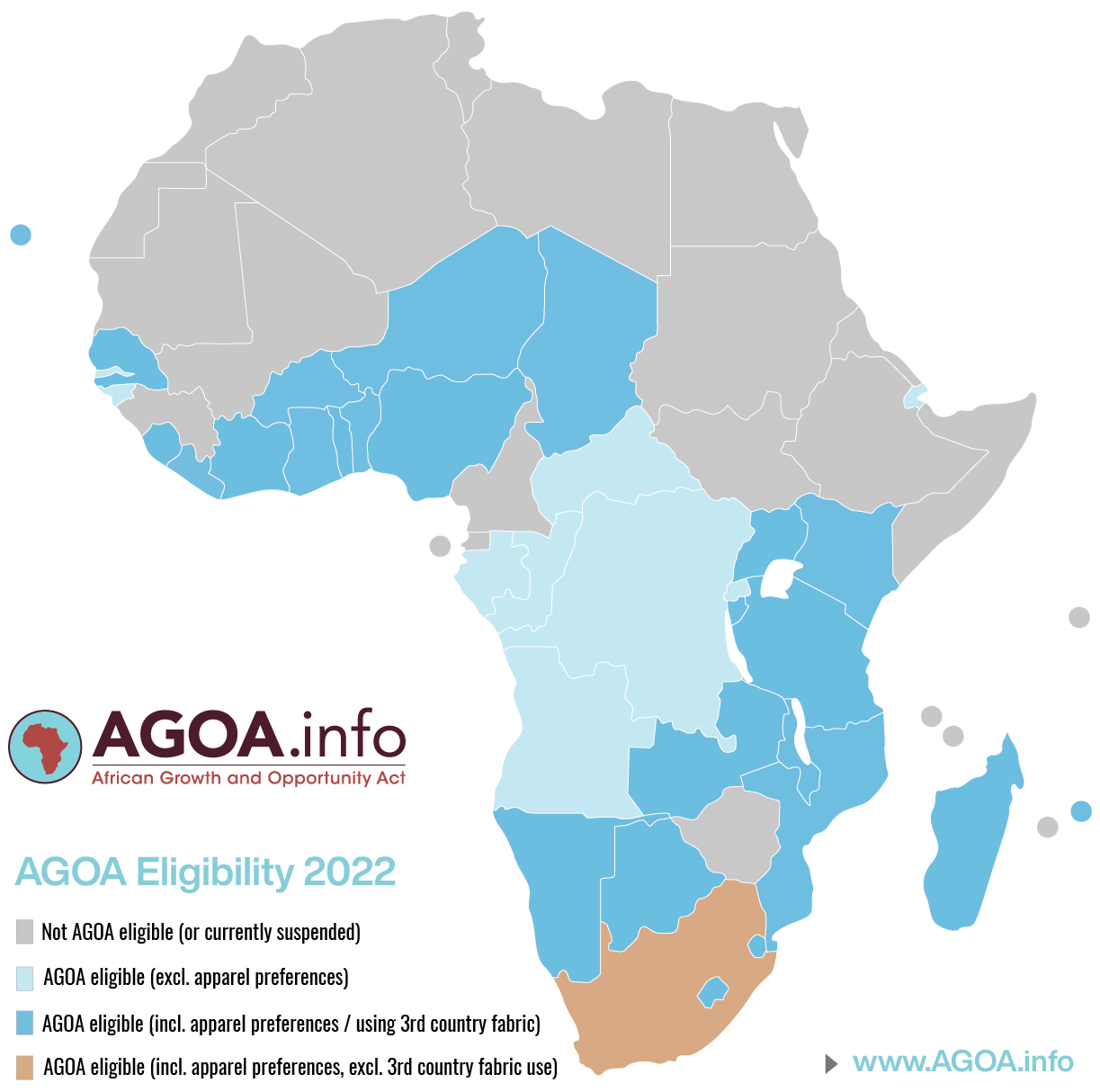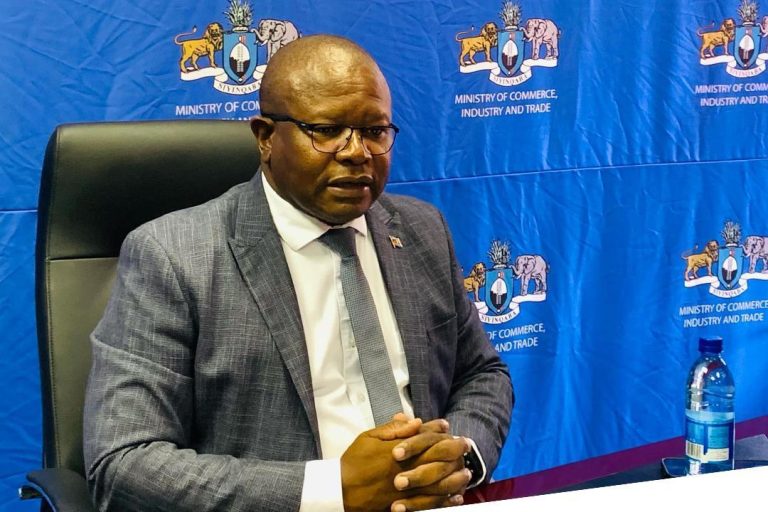2025 AGOA Eligibility Hearing: Understanding The Future Of African Trade Benefits
Mar 19 2025
The 2025 AGOA Eligibility Hearing is a crucial event that will shape the future of trade relations between Africa and the United States. As one of the most significant trade agreements in modern history, AGOA (African Growth and Opportunity Act) plays a vital role in fostering economic growth and development on the continent. This hearing will determine which African countries continue to benefit from preferential trade access to the U.S. market.
The AGOA initiative has been instrumental in boosting exports from eligible African nations, creating jobs, and promoting sustainable economic development. Since its inception in 2000, AGOA has provided duty-free access to thousands of products from Africa into the United States. This benefit has significantly contributed to the economic transformation of many African countries, making the upcoming eligibility hearing in 2025 a topic of great importance.
As the world evolves economically and politically, understanding the implications of the 2025 AGOA Eligibility Hearing becomes even more critical. This article delves deep into the history, significance, and potential outcomes of this hearing, offering valuable insights for policymakers, business leaders, and anyone interested in the future of Africa's trade relations with the United States.
Table of Contents
- History of AGOA and Its Importance
- AGOA Eligibility Criteria
- Benefits of AGOA for African Economies
- Challenges Faced by AGOA Countries
- What to Expect from the 2025 AGOA Eligibility Hearing
- Economic Impact of AGOA
- Key Industries Benefiting from AGOA
- Sustainability and Environmental Concerns
- Role of U.S. Policymakers
- Future of AGOA Beyond 2025
- Conclusion and Call to Action
History of AGOA and Its Importance
The African Growth and Opportunity Act (AGOA) was enacted in 2000 as a landmark trade agreement between the United States and eligible African nations. Its primary goal was to promote economic growth and development in Africa by providing preferential trade access to the U.S. market. AGOA has since become one of the most successful trade initiatives in history, fostering economic partnerships and encouraging sustainable development.
Initially designed to run for 10 years, AGOA was extended multiple times, with its current expiration set for 2025. Over the years, AGOA has enabled African countries to export thousands of products duty-free to the United States, boosting their economies and creating jobs. The upcoming eligibility hearing in 2025 will be pivotal in determining the future of this vital trade agreement.
AGOA Eligibility Criteria
To qualify for AGOA benefits, African countries must meet specific eligibility criteria. These criteria include:
- Establishing market-based economies
- Implementing policies to protect internationally recognized worker rights
- Eliminating barriers to U.S. trade and investment
- Enforcing strict anti-corruption measures
- Promoting the rule of law and good governance
These requirements ensure that only countries committed to economic reform and good governance benefit from AGOA. The 2025 eligibility hearing will evaluate whether current AGOA countries continue to meet these standards.
Benefits of AGOA for African Economies
AGOA has brought numerous benefits to African economies, transforming them into more competitive players on the global stage. Below are some of the key advantages:
- Increased Exports: AGOA has enabled African countries to export a wide range of products duty-free to the United States, boosting their export volumes significantly.
- Job Creation: The agreement has created millions of jobs in various sectors, from manufacturing to agriculture.
- Foreign Direct Investment (FDI): AGOA has attracted substantial FDI into Africa, further fueling economic growth and development.
These benefits highlight the importance of maintaining AGOA eligibility for African nations.
Challenges Faced by AGOA Countries
Despite its successes, AGOA countries face several challenges that threaten their continued eligibility. Some of these challenges include:
- Political instability and conflict
- Corruption and weak governance structures
- Limited diversification of export products
- Infrastructure deficits
Addressing these issues will be crucial for AGOA countries to maintain their eligibility and continue benefiting from the agreement.
What to Expect from the 2025 AGOA Eligibility Hearing
The 2025 AGOA Eligibility Hearing will be a comprehensive review of the progress made by eligible African countries. It will assess whether these nations have met the necessary criteria to retain their AGOA status. Key areas of focus will include:
- Compliance with eligibility requirements
- Economic reforms and progress
- Human rights and labor standards
This hearing will also explore opportunities for expanding AGOA benefits and enhancing its impact on African economies.
Key Industries Benefiting from AGOA
Several industries have significantly benefited from AGOA, including:
- Textiles and apparel
- Agriculture and agro-processing
- Mining and minerals
These industries have seen substantial growth due to AGOA, contributing to economic diversification and job creation.
Sustainability and Environmental Concerns
As AGOA continues to evolve, there is increasing emphasis on sustainability and environmental protection. The 2025 hearing will likely address how AGOA countries can integrate sustainable practices into their economic activities. This includes:
- Adopting eco-friendly production methods
- Protecting natural resources
- Promoting green technologies
These measures are essential for ensuring the long-term viability of AGOA benefits.
Role of U.S. Policymakers
U.S. policymakers play a critical role in shaping the future of AGOA. Their decisions during the 2025 hearing will determine the direction of this important trade agreement. Key considerations for policymakers include:
- Expanding AGOA benefits to additional countries
- Incorporating new sectors into the agreement
- Strengthening enforcement mechanisms
Engaging with African partners and stakeholders will be crucial for making informed decisions.
Future of AGOA Beyond 2025
Beyond 2025, the future of AGOA will depend on the outcomes of the eligibility hearing and subsequent negotiations. Potential scenarios include:
- Renewal of AGOA with updated terms
- Expansion to include new countries or sectors
- Integration with other regional trade agreements
Continued collaboration between the U.S. and African nations will be essential for ensuring the long-term success of AGOA.
Economic Impact of AGOA
The economic impact of AGOA has been profound, transforming the trade landscape in Africa. According to a report by the U.S. International Trade Administration, AGOA has facilitated over $1 trillion in trade between the U.S. and Africa since its inception. This has resulted in:
- Significant export growth for AGOA countries
- Increased foreign direct investment
- Improved economic diversification
These figures underscore the importance of AGOA in driving economic development in Africa.
Conclusion and Call to Action
The 2025 AGOA Eligibility Hearing represents a critical juncture in the future of Africa's trade relations with the United States. By examining the progress made by AGOA countries and addressing existing challenges, this hearing will shape the next phase of this vital trade agreement. The benefits of AGOA extend far beyond trade, fostering economic growth, job creation, and sustainable development across the continent.
We invite readers to engage with this content by sharing their thoughts and insights in the comments section. Additionally, exploring other articles on our platform will provide further insights into global trade and economic development. Together, we can contribute to a brighter future for Africa and its trading partners.
Data source: U.S. International Trade Administration, World Bank, and United Nations Conference on Trade and Development.


